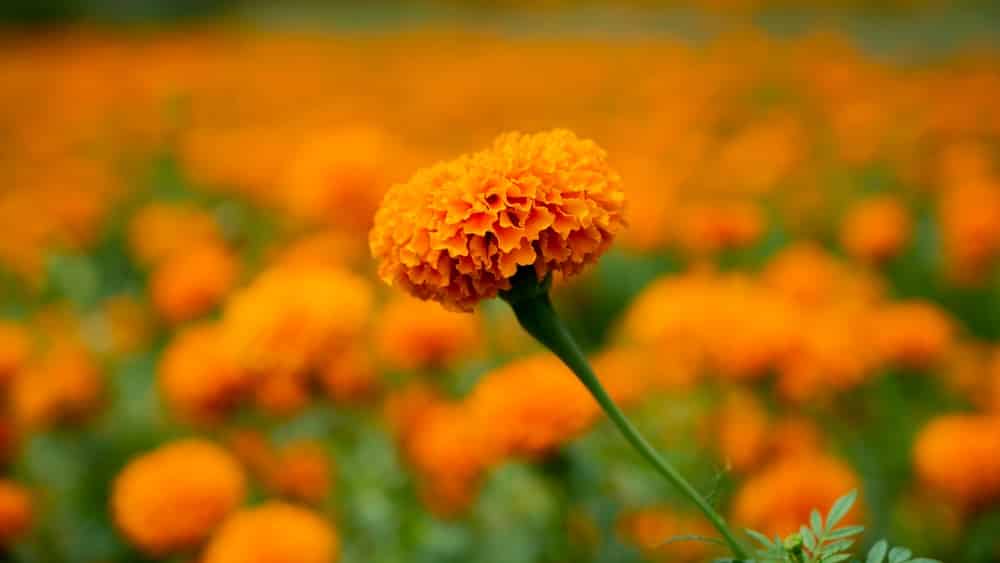
Tagetes is an annual flowering plant that is also often planted as perennials. This is because it comes in over 1000 species that people can select from. While most of these are annual flowers, some varieties can survive a wider range of temperature conditions. This allows the plant to survive several years which results in it becoming a perennial. With that being said, most tagetes or also known as marigolds are low-maintenance plants. This is why tons of beginners decide to plant them in their gardens.
This makes the ground look beautiful while also having a unique scent. The plant also has tons of medicinal properties that make it quite useful. Though, some bugs can attack your marigolds and damage them. Talking about this, people often question “What bugs eat marigolds?”. Answering this, we will be using this article to provide you with a list of bugs that can eat your marigold flowers as well as ways that can be used to prevent it.
What Bug Eats Marigolds?
- Grasshoppers
Grasshoppers are insects that belong to the Caelifera suborder. These are among some of the oldest living groups of herbivorous insects. Keeping this in mind, you should note that these bugs usually eat the leaves of plants, but they can also sometimes attack the flowers, stems, or seeds.
The insects can also be found scavenging around gardens for dead insects that are then consumed for protein. If your garden has been attacked by these bugs, then people should easily be able to notice them because of their large size. Considering this, you can use chemicals to keep the insect away from your marigolds.
- Spider Mites
Spider mites are another type of bug that is quite small in size. These are so tiny that most people cannot even notice them unless their plants have been infested by them. You should note that the insect usually attacks plants that have large leaves on them.
This is because spider mites hide beneath the flower and then directly attack the cells of the plant. They will then keep on spreading and consuming all the nutrients of your flowers until the plant dies. Once this happens, the insects move from the dead flower to a new plant and then start attacking it.
These are usually attracted to marigolds because of the unique odor coming from them. You should note that this helps in keeping all of the other flowers in your garden safe from insects. However, you also have to keep a check over your marigold plants at all times so that the infestation can be stopped from spreading as soon as possible.
- Caterpillars
Caterpillars or also scientifically referred to as larva usually stuff themselves with leaves. They will then continue growing under or over it until they have shed all of its skin. Once this happens, the insect then grows into a butterfly or moth depending on its species.
With that being said, you will notice that the large leaves on marigold plants usually attract insects. Aside from growing on the plant, these bugs can also start eating your flowers. This can be quite annoying for some people which is why you should take care of the issue. Spraying your plants with chemicals can be a great way of ensuring that insects like these can stay away from them.
- Japanese Beetles
Finally, one more type of bug that can be found eating marigolds is a Japanese beetle. These are quite common and usually damaged grass when overwintering in the soil. You can usually notice this as small brown patches will start forming around the area these insects have infected.
Other than this, the beetles can also get attracted to plants like marigolds. If this happens, then the bug will destroy the roots of your flower which causes it to dry out. This can be quite annoying which is why keeping a check over your plants is necessary.
People can take precautions beforehand as it helps in ensuring that problems like these can be avoided. Tons of companies manufacture fertilizers that have fungicides and insecticides mixed in with them. These not only help in keeping the plant healthy but also keep annoying bugs like Japanese beetles away from your garden.
